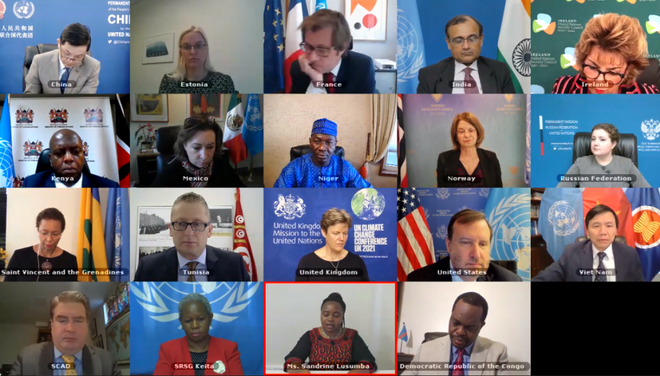Theconference focused on the operation of the UN Stabilization Mission in theDemocratic Republic of the Congo (MONUSCO) and on recent developments in thecountry.
Quy, PermanentRepresentative of Vietnam to the UN, shared the concern of other representativesof the UNSC member states over security and humanitarian challenges facing theDRC, particularly increasing violence between communities and complicated developmentsof the COVID-19 and Ebola pandemics in the country.
Heexpressed his condolences to the Italian Government, the World Food Programme (WFP),and the families of victims of the February 22 attack on a WFP convoy in thenortheast of Goma. The Italian ambassador to the DRC, Luca Attanasio, was amongthree killed in the attack.
Thediplomat underscored the importance of addressing the root causes of conflicts byincreasing the role of the State, overhauling security work, and developing theeconomy.
It is alsoimportant to strengthen regional cooperation and increase assistance from theUN and international community, he added.
MONUSCO’ssupport, especially in terms of protecting civilians and strengthening Stateinstitutions, remains extremely crucial amid persisting violence in the DRC’seastern regions, the diplomat noted, saying hard-won achievements must bepreserved by ensuring a conditions-based transition of the Mission.
At themeeting, head of MONUSCO Bintou Keita, for the first time in her new capacity,briefed the Council on the situation in the country and on progress by MONUSCOtowards implementing its mandate. Keita was appointed to head of MONUSCO onJanuary 15.
Shereported that MONUSCO is expanding cooperation with the United Nations countryteam, among others, as it prepares to close its field offices in the Kasaïregion in June, and in Tanganyika province in 2022.
However,MONUSCO is not yet able to consider its withdrawal from North Kivu, South Kivuand Ituri provinces due to persisting extremely serious security and protectionchallenges, she noted./.


























